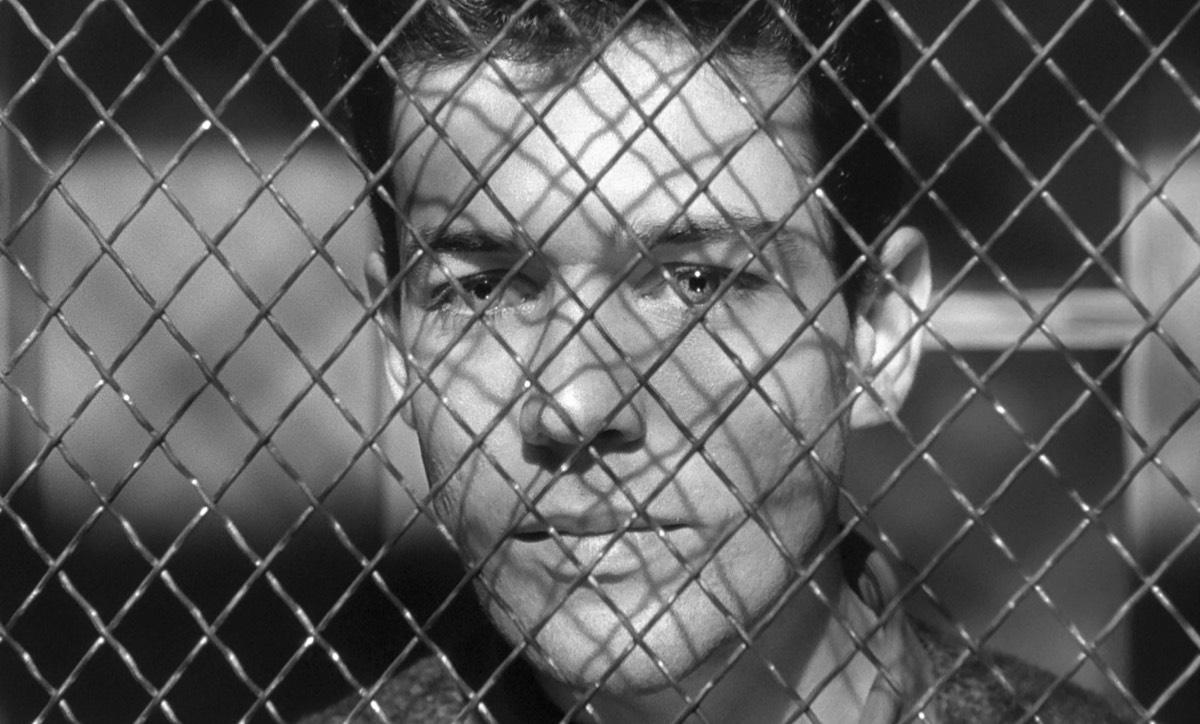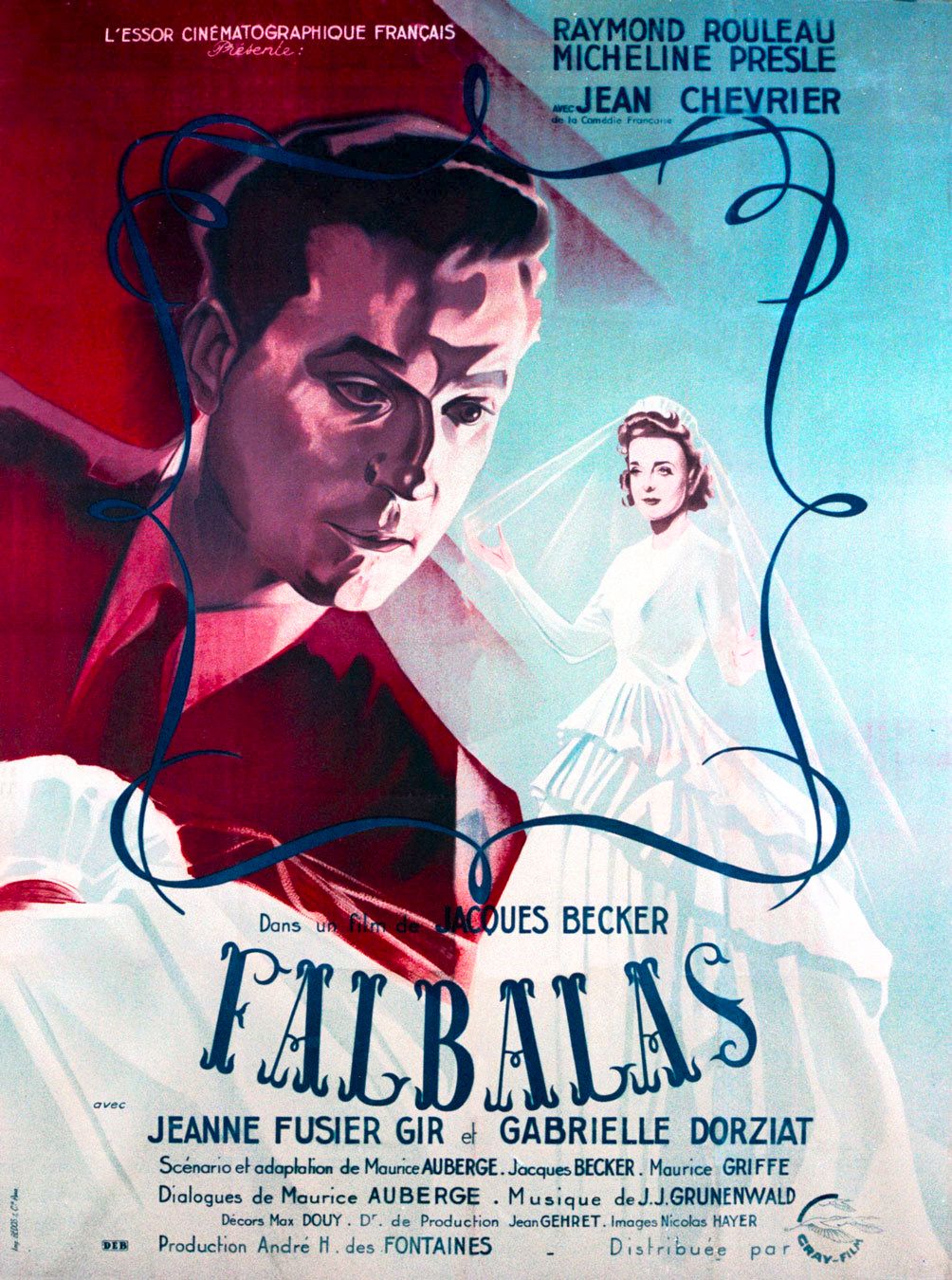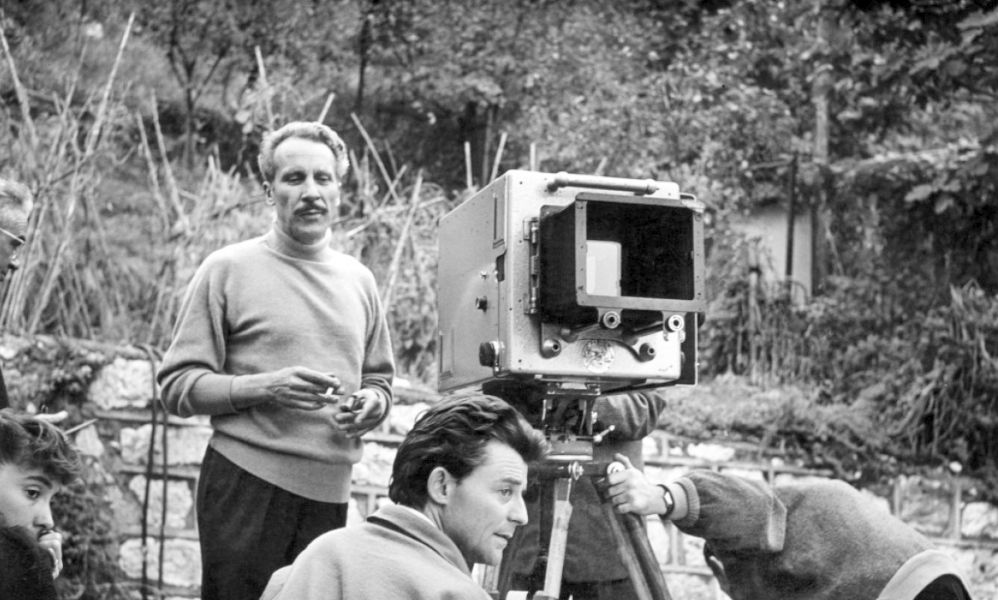"His entire output consisted of only 13 films, but they include some of the most artistically and technically substantial in French cinema. He is one of the few Old Guard directors done honor by the New Wave, which reveres him for his masterpiece, the atmospheric period love story Casque d'Or." - The Film Encyclopedia, 2012
Jacques Becker
Key Production Country: France
Key Genres: Drama, Crime Drama, Comedy Drama, Romance, Romantic Drama, Prison Film
Key Collaborators: Marguerite Renoir (Editor), Maurice Griffe (Screenwriter), Paul Barge (Character Actor), Jean-Jacques Grünenwald (Composer), Jean d'Eaubonne (Production Designer), Gaston Modot (Character Actor), Daniel Gélin (Leading Actor), André Halley des Fontaines (Producer), Robert Lefebvre (Cinematographer), Pierre Montazel (Cinematographer), Lino Ventura (Leading Character Actor), Jean Wiener (Composer)
Key Genres: Drama, Crime Drama, Comedy Drama, Romance, Romantic Drama, Prison Film
Key Collaborators: Marguerite Renoir (Editor), Maurice Griffe (Screenwriter), Paul Barge (Character Actor), Jean-Jacques Grünenwald (Composer), Jean d'Eaubonne (Production Designer), Gaston Modot (Character Actor), Daniel Gélin (Leading Actor), André Halley des Fontaines (Producer), Robert Lefebvre (Cinematographer), Pierre Montazel (Cinematographer), Lino Ventura (Leading Character Actor), Jean Wiener (Composer)
"Becker was adept at evoking the everyday lives of ordinary people, alert to delicate emotional nuances, and endowed with a strong sense of time, place and social milieu. If his work is now underrated, that is perhaps because he placed greater emphasis on characters and relationships than on narrative complexity." - Geoff Andrew (The Director's Vision, 1999)
"Becker was interested in what the cinema could do just as he was interested in what men and women do. Never searching for the extraordinary, he would go to endless lengths to bring out not some abstract rhythm in the lives of people (as René Clair did) but the true style and rhythm of their sensibilities." - Dudley Andrew (International Dictionary of Films and Filmmakers, 1991)

Le Trou (1960)
"Becker was a humane, observant, and inventive director who seemed willed into films by his apprenticeship with Jean Renoir... He lacked the master's innate passion for cinema, and he never properly discovered either a style or a subject matter in which he could immerse himself." - David Thomson (The New Biographical Dictionary of Film, 2002)
"One of the generation of French filmmakers who flourished in the years between the Golden Age of the 1930s and the rise of the New Wave in the late 1950s, Jacques Becker is a champion of understatement among directors, with no interest in flashy technical devices or show-off camera moves. His dexterity, the unstressed elegance of his images, and the wit and fluency of his narrative style have led some critics to write him off as a lightweight filmmaker, lacking in seriousness. Becker also loved to explore fresh territory and different genres - which is no way to build a reputation as a respected auteur." - Philip Kemp (501 Movie Directors, 2007)
"Becker was both a brilliant technician and a fastidious artist and his best films communicate and infectious air of enjoyment." - John Gillett (The International Encyclopedia of Film, 1972)
"The son of an Anglo-French upper middle-class family, Becker acted as assistant to Jean Renoir in the 1930s. This was a key influence on his work and critical reputation, locating him within the realist-humanist tradition of French cinema... Although lacking a clear social agenda, Becker's work can be seen, like Renoir's, as an ethnocentric panorama of his time: Rendez-vous de juillet (1949) is a study of the postwar generation; Antoine et Antoinette (1947), Édouard et Caroline (1951) and Rue d l'Estrapade (1953) are light comedies which gently interrogate their popular and bourgeois settings; as Becker put it, 'I am French, I work on Frenchmen, I look at Frenchmen, I am interested in Frenchmen'." - Ginette Vincendeau (Encyclopedia of European Cinema, 1995)
"Like Renoir, Becker was fundamentally a humanist, intent on faithfully conveying experience. His aesthetic was elegantly self-effacing, but discreetly attuned to social groupings, authenticity and character. Becker described himself as "some kind of entomologist", and you can see what he means in the devastating character revelations of Le trou (The Hole, 1959)." - Tom Charity (The Rough Guide to Film, 2007)
"I find Becker the equal of—if not better than—even people like Hawks. He had such a wide range: going from Casque d’or to Edouard et Caroline, or from Antoine et Antoinette to Touchez pas au grisbi to Le Trou. An enormous range, and always with the same deeply organic quality. He was doing things which were extremely bold and extremely new, but they were done so fluidly that nobody noticed how new it was." - Bertrand Tavernier (Film Comment, 2014)
Selected Filmography
{{row.titlelong}}
Jacques Becker / Favourite Films
City Lights (1931) Charles Chaplin, The Crowd (1928) King Vidor, Foolish Wives (1922) Erich von Stroheim, Greed (1924) Erich von Stroheim, Lonesome (1928) Pál Fejös, M (1931) Fritz Lang, Modern Times (1936) Charles Chaplin, The Pilgrim (1923) Charles Chaplin, The Wedding March (1928) Erich von Stroheim.
Source: Cinematheque Belgique (1952)
City Lights (1931) Charles Chaplin, The Crowd (1928) King Vidor, Foolish Wives (1922) Erich von Stroheim, Greed (1924) Erich von Stroheim, Lonesome (1928) Pál Fejös, M (1931) Fritz Lang, Modern Times (1936) Charles Chaplin, The Pilgrim (1923) Charles Chaplin, The Wedding March (1928) Erich von Stroheim.
Source: Cinematheque Belgique (1952)
Jacques Becker / Fan Club
Bertrand Tavernier, Peter von Bagh, Aki Kaurismäki, Pierre Rissient, Kenneth Turan, José Luis Guarner, Ginette Vincendeau, Hirokazu Koreeda, José Luis Garci, Makoto Shinozaki, Claude Lelouch, Pierre Salvadori.
Bertrand Tavernier, Peter von Bagh, Aki Kaurismäki, Pierre Rissient, Kenneth Turan, José Luis Guarner, Ginette Vincendeau, Hirokazu Koreeda, José Luis Garci, Makoto Shinozaki, Claude Lelouch, Pierre Salvadori.
"Fan Club"
These film critics/filmmakers have, on multiple occasions, selected this director’s work within film ballots/lists that they have submitted.
These film critics/filmmakers have, on multiple occasions, selected this director’s work within film ballots/lists that they have submitted.


